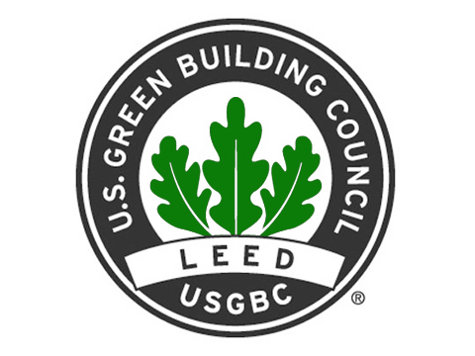Given the questions regarding the waste borne of the Leadership in Energy and Environmental Design (LEED) standards for green building certification, it’s almost fitting that Washington D.C has again topped the U.S. Green Building Council’s (USGBC) list with the highest concentration of LEED-certified buildings.
According to a report from Sustainable Business Oregon, the District of Columbia boasts “36.7 million square feet of LEED-certified building per capita,” having increased its number by 22.2 million square feet in 2012.
A total of 13 federal agencies, along with almost 450 other agencies of government nationwide, mandate adherence to LEED standards in new or remodeling building projects. The standards originate from the USGBC, and the structure of the entire boondoggle has led to accusations of monopoly by design.
Just last week, the Taxpayers Protection Alliance filed a request under the Freedom of Information Act (FOIA) for all email correspondence between the General Services Administration (GSA) and the USGBC.
GSA is the largest purveyor of the federal buildings that have put DC at the top of the LEED-certified list. A separate study from USA Today totals somewhere around a third of all LEED-backed buildings as being government-owned.
David Williams, who heads up the government watchdog group, argues that the essential mandate for LEED has led to a “taxpayer monopoly.”
“We’re trying to see if there is a connection between the U.S. Green Building Council, a 501(c)3, that is benefitting financially from these new standards… to get to the genesis of these LEED standards and see exactly just how much influence this nonprofit had,” he stated.
Questions have also been asked concerning tax breaks resulting from using the USGBC’s program. The USA Today study also reported that LEED certification has earned upwards of 2,000 building projects nationwide over $500 million in tax breaks.
The Daily Caller’s report of the FOIA request further noted that LEED points can be earned simply by hiring a design team member recognized as a “LEED expert.” Such distinction is “earned through an up to $800 course from a non-profit that USGBC created.”
These facts have helped detractors dub the system as akin to “cheap points for tax breaks.”
Such issues lie at the heart of questions from watchdogs like the Taxpayers Protection Alliance. All of this comes with “little effort” being put “into researching LEED’s effectiveness” as well as the increased costs of construction accompanying the distinction.
Not only that, but publications and state elected officials have also called into question the real benefits, both economically and environmentally, of LEED certification.
While D.C. used last year to bulk its numbers to over 36 million square feet, two governors issued executive orders prohibiting LEED’s usage for certifying new state building projects.
Both Maine’s Paul LePage and Georgia’s Nathan Deal did so based on perceived flaws within the program’s metrics for certifying timber. LEED itself mandates sole adherence to one form of timber certification, which marks less than a quarter of all domestic timber. In turn, private timber owners are shut out of potential jobs while the energy costs of transporting timber to building sites ratchets upwards.
Environmental questions don’t stop there. USA Today‘s examination also noted that, of 11 Navy buildings certified by LEED, 4 of them left an environmental imprint greater than conventional buildings, with 3 more leaving footprints nearly identical.
All of that has combined to form the argument that the GSA and other government agencies have fostered a monopoly of benefits for non-profits, easy tax breaks and higher construction costs on the taxpayers’ dime. And for a program that many argue is hardly worthy of the distinction it’s been awarded, be it from an economic or environmental standpoint.
Is it really any wonder, then, that the federal government has decided to own the lion’s share of such a program?

COMMENTS
Please let us know if you're having issues with commenting.